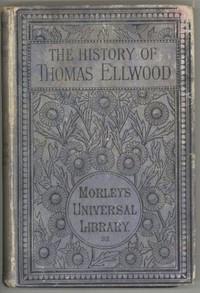Read this ebook for free! No credit card needed, absolutely nothing to pay.
Words: 95620 in 15 pages
This is an ebook sharing website. You can read the uploaded ebooks for free here. No credit cards needed, nothing to pay. If you want to own a digital copy of the ebook, or want to read offline with your favorite ebook-reader, then you can choose to buy and download the ebook.


: Who Wrote the Bible? : a Book for the People by Gladden Washington - Bible Criticism interpretation etc.
WHO WROTE THE BIBLE?
A LOOK INTO THE HEBREW BIBLE.
The aim of this volume is to put into compact and popular form, for the benefit of intelligent readers, the principal facts upon which scholars are now generally agreed concerning the literary history of the Bible. The doctrines taught in the Bible will not be discussed; its claims to a supernatural origin will not be the principal matter of inquiry; the book will concern itself chiefly with those purely natural and human agencies which have been employed in writing, transcribing, editing, preserving, transmitting, translating, and publishing the Bible.
The writer of this book has no difficulty in believing that the Bible contains supernatural elements. He is ready to affirm that other than natural forces have been employed in producing it. It is to these superhuman elements in it that reference and appeal are most frequently made. But the Bible has a natural history also. It is a book among books. It is a phenomenon among phenomena. Its origin and growth in this world can be studied as those of any other natural object can be studied. The old apple-tree growing in my garden is the witness to me of some transcendent truths, the shrine of mysteries that I cannot unravel. What the life is that was hidden in the seed from which it sprang, and that has shaped all its growth, co?rdinating the forces of nature, and producing this individual form and this particular variety of fruit,--this I do not know. There are questions here that no man of science can answer. Life in the seed of the apple as well as in the soul of man is a mystery. But there are some things about the apple-tree that may be known. I may know--if any one has been curious enough to keep the record--when the seed was planted, when the shoot first appeared above the ground, how many branches it had when it was five years old, how high it was when it was ten years old, when this limb and that twig were added, when the first blossom appeared, when that branch was grafted and those others were trimmed off. All this knowledge I may have gained; and in setting forth these facts, or such as these, concerning the natural history of the tree, I do not assume that I am telling all about the life that is in it. In like manner we may study the origin and growth of the Bible without attempting to decide the deeper questions concerning the inspiration of its writers and the meaning of the truths they reveal.
Mr. Huxley has written a delightful treatise on "A Piece of Chalk," and another on "The Crayfish;" a French writer has produced an entertaining volume entitled "The Story of a Stick;" the books of the Bible, considered from a scientific or bibliographical point of view, should repay our study not less richly than such simple, natural objects.
A great amount of study has been expended of late on the Scriptures, and the conclusions reached by this study are of immense importance. What is called the Higher Criticism has been busy scanning these old writings, and trying to find out all about them. What is the Higher Criticism? It is the attempt to learn from the Scriptures themselves the truth about their origin. It consists in a careful study of the language of the books, of the manners and customs referred to in them, of the historical facts mentioned by them; it compares part with part, and book with book, to discover agreements, if they exist, and discrepancies, that they may be reconciled. This Higher Criticism has subjected these old writings to such an analysis and inspection as no other writings have ever undergone. Some of this work has undoubtedly been destructive. It has started out with the assumption that these books are in no respect different from other sacred books; that they are no more a revelation from God than the Zendavesta or the Nibelungen Lied is a revelation from God; and it has bent its energies to discrediting, in every way, the veracity and the authority of our Scriptures. But much of this criticism has been thoroughly candid and reverent, even conservative in its temper and purpose. It has not been unwilling to look at the facts; but it has held toward the Bible a devout and sympathetic attitude; it believes it to contain, as no other book in the world contains, the message of God to men; and it has only sought to learn from the Bible itself how that message has been conveyed. It is this conservative criticism whose leadership will be followed in these studies. No conclusions respecting the history of these writings will be stated which are not accepted by conservative scholars. Nevertheless it must be remembered that the results of conservative scholarship have been very imperfectly reported to the laity of the churches. Many facts about the Bible are now known by intelligent ministers of which their congregations do not hear. An anxious and not unnatural feeling has prevailed that the faith of the people in the Bible would be shaken if the facts were known. The belief that the truth is the safest thing in the world, and that the things which cannot be shaken will remain after it is all told, has led to the preparation of this volume.
I have no doubt, however, that some of the statements which follow will fall upon some minds with a shock of surprise. The facts which will be brought to light will conflict very sharply with some of the traditional theories about the Bible. Some of my readers may be inclined to fear that the foundations of faith are giving way. Let me, at the outset, request all such to suspend their judgment and read the book through before they come to such a conclusion. Doubtless it will be necessary to make some readjustment of theories; to look at the Bible less as a miraculous and more as a spiritual product; to put less emphasis upon the letter and more upon the spirit; but after all this is done it may appear that the Bible is worth more to us than it ever was before, because we have learned how rightly to value it.
The word "Bible" is not a biblical word. The Old Testament writings were in the hands of the men who wrote the books of the New Testament, but they do not call these writings the Bible; they name them the Scriptures, the Holy Scriptures, the Sacred Writings, or else they refer to them under the names that were given to specific parts of them, as the Law, the Prophets, or the Psalms. Our word Bible comes from a word which began to be applied to the sacred writings as a whole about four hundred years after Christ. It is a Greek plural noun, meaning the books, or the little books. These writings were called by this plural name for about eight hundred years; it was not till the thirteenth century that they began to be familiarly spoken of as a single book. This fact, of itself, is instructive. For though a certain spiritual unity does pervade these sacred writings, yet they are a collection of books, rather than one book. The early Christians, who honored and prized them sufficiently, always spoke of them as "The Books," rather than as "The Book,"--and their name was more accurate than ours.
The names Old and New Testament are Bible words; that is to say we find the names in our English Bibles, though they are not used to describe these books. Paul calls the old dispensation the old covenant; and that phrase came into general use among the early Christians as contrasted with the Christian dispensation which they called the new covenant; therefore Greek-speaking Christians used to talk about "the books of the old covenant," and "the books of the new covenant;" and by and by they shortened the phrase and sometimes called the two collections simply "Old Covenant" and "New Covenant." When the Latin-speaking Christians began to use the same terms, they translated the Greek word "covenant" by the word "testament" which means a will, and which does not fairly convey the sense of the Greek word. And so it was that these two collections of sacred writings began to be called The Old Testament and The New Testament. It is the former of these that we are first to study.
When Jesus Christ was on the earth he often quoted in his discourses from the Jewish Scriptures, and referred to them in his conversations. His apostles and the other New Testament writers also quote freely from the same Scriptures, and books of the early Christian Fathers are full of references to them. What were these Jewish Scriptures?
At the time when our Lord was on the earth, the sacred writings of the Jews were collected in two different forms. The Palestinian collection, so called, was written in the Hebrew language, and the Alexandrian collection, called the Septuagint, in the Greek. For many years a large colony of devout and learned Jews had lived in Alexandria; and as the Greek language was spoken there, and had become their common speech, they translated their sacred writings into Greek. This translation soon came into general use, because there were everywhere many Jews who knew Greek well enough but knew no Hebrew at all. When our Lord was on earth, the Hebrew was a dead language; it may have been the language of the temple, as Latin is now the language of the Roman Catholic mass; but the common people did not understand it; the vernacular of the Palestinian Jews was the Aramaic, a language similar to the Hebrew, sometimes called the later Hebrew, and having some such relation to it as the English has to the German tongue. There is some dispute as to the time when the Jews lost the use of their own language and adopted the Aramaic; many of the Jewish historians hold the view that the people who came back from the captivity to Jerusalem had learned to use the Aramaic as their common speech, and that the Hebrew Scriptures had to be interpreted when they were read to them. Others think that this change in language took place a little later, and that it resulted in great measure from the close intercourse of the Jews with the peoples round about them in Palestine, most of whom used the Aramaic. At any rate the change had taken place before the coming of Christ, so that no Hebrew was then spoken familiarly in Palestine. When "the Hebrew tongue" is mentioned in the New Testament it is the Aramaic that is meant, and not the ancient Hebrew. The Greek, on the other hand, was a living language; it was spoken on the streets and in the markets everywhere, and many Jews understood it almost as well as they did their Aramaic vernacular, just as many of the people of Constantinople and the Levant now speak French more fluently than their native tongues. The Greek version of the Scriptures was, for this reason, more freely used by the Jews even in Palestine than the Hebrew original; it was from the Septuagint that Christ and his apostles made most of their quotations. Out of three hundred and fifty citations in the New Testament from the Old Testament writings about three hundred appear to be directly from the Greek version made at Alexandria. Between these two collections of sacred writings, the one written in Hebrew, then a dead language, and the other in Greek,--the one used by scholars only, and the other by the common people,--there were some important differences, not only in the phraseology and in the arrangement of the books, but in the contents themselves. Of these I shall speak more fully in the following chapters. It is to the Hebrew collection, which is the original of these writings, and from which our English Old Testament was translated, that we shall now give our attention. What were these Hebrew Scriptures of which all the writers of the New Testament knew, and from which they sometimes directly quote?
The contents of this collection were substantially if not exactly the same as those of our Old Testament, but they were arranged in very different order. Indeed they were regarded as three distinct groups of writings, rather than as one book, and the three groups were of different degrees of sacredness and authority. Two of these divisions are frequently referred to in the New Testament, as The Law and The Prophets; and the threefold division is doubtfully hinted at in Luke xxiv. 44, where our Lord speaks of the predictions concerning himself which are found in the Law and the Prophets and in the Psalms.
Free books android app tbrJar TBR JAR Read Free books online gutenberg
More posts by @FreeBooks

: The History of Thomas Ellwood Written By Himself by Ellwood Thomas Morley Henry Author Of Introduction Etc - Quakers Biography; Ellwood Thomas 1639-1713


: Richard III by Shakespeare William Schlegel August Wilhelm Von Translator - Great Britain Kings and rulers Drama; Richard III King of England 1452-1485 Drama; Tragedies; Historical drama; Great Britain History Richard III 1483-1485 Drama DE Drama






